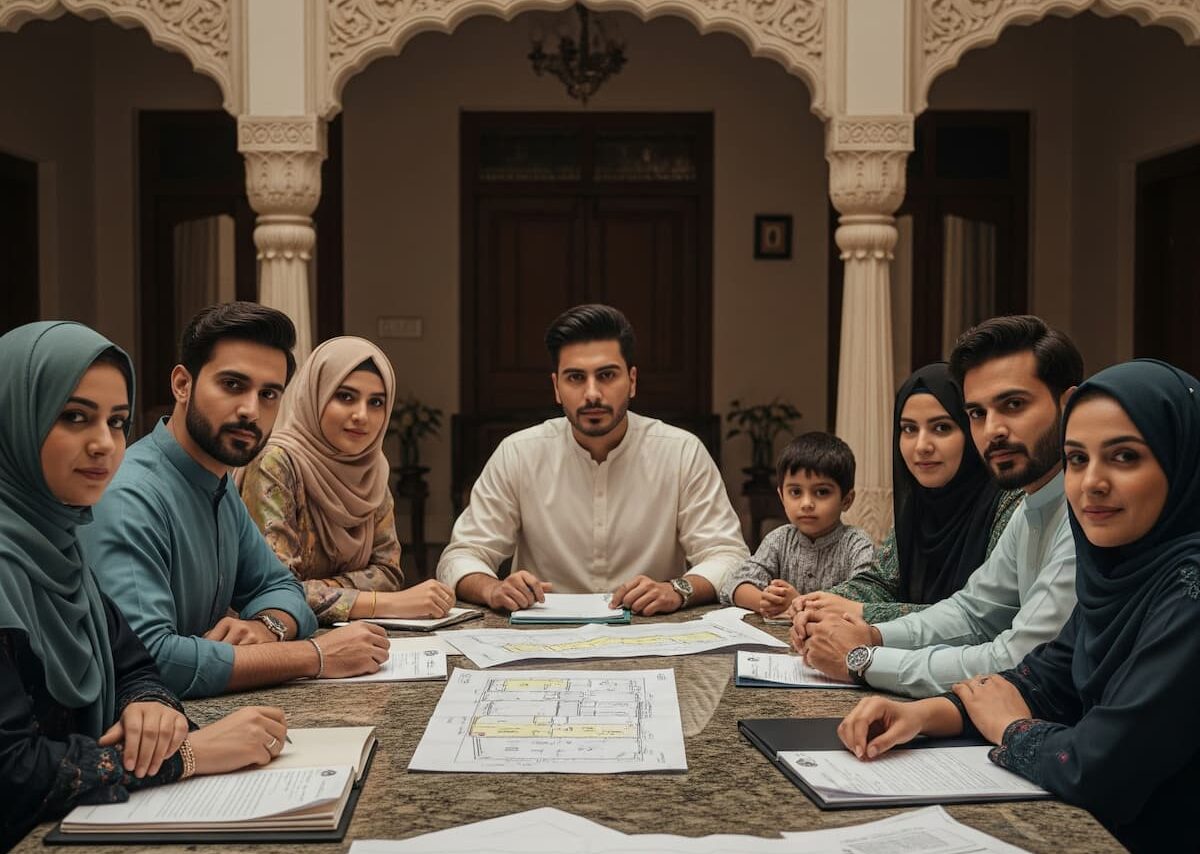
Understanding how property is divided in Islam is essential for Muslims planning their estate or dealing with inheritance matters. Islamic inheritance law (known as “Faraid” or “Mirath”) lays out a systematic, respectful, and detailed method for distributing assets after a person passes away. This article provides a clear, in-depth, and human-focused overview based on authoritative Islamic sources and ranking content, ensuring all common queries are addressed.
Introduction to Islamic Inheritance
Islamic inheritance divides a person’s property according to well-defined Quranic rules meant to honor rights, remove disputes, and secure family welfare. Whether you own land, homes, business assets, or even jewelry, understanding this law can help ensure justice for your loved ones and peace for all heirs.
Core Principles of Division
- Fixed Shares: The Qur’an clearly specifies who inherits and in what proportion. These are called “Quranic sharers.”
- Two-Tier Process: First, debts and funeral expenses are paid, then any will (wasiyyah) up to 1/3 of the estate is executed, and only then is the rest divided among heirs.
- Gender Rule: Generally, a male heir receives double the share of a female of equal relation (e.g., a son gets double what a daughter gets).
- Eligibility: Only Muslim blood relatives are eligible; adopted children and non-Muslims do not inherit under classical Islamic law but can receive a share from the will (one-third portion).
- No Arbitrary Changes: Specific shares cannot be altered by the deceased’s wishes or by heirs.
Step-by-Step Property Division
- Settle Debts & Funeral Expenses: All outstanding debts, funeral costs, and unpaid religious dues (like zakat) must be paid first.
- Execute the Will (Wasiyyah): Up to one-third of the estate can be bequeathed to non-heirs or for charity as per the deceased’s written will. This portion cannot go to eligible heirs unless all other heirs consent.
- Divide the Remainder: The estate that remains is distributed according to Quranic guidelines among the “sharers” (spouse, parents, children, etc.).
Fixed Shares: Who Gets What?
Below is a simple table of core heirs and their standard shares, assuming all qualifying relatives are present:
| Heir | Share of Estate If No Children | With Children |
|---|---|---|
| Husband | 1/2 | 1/4 |
| Wife (single) | 1/4 | 1/8 |
| Father | 1/6 (plus residue possible) | 1/6 |
| Mother | 1/3 (no children) | 1/6 |
| Each Son | Double share of daughter | Double share |
| Each Daughter | Half share of son | Single share |
- Sons & Daughters: The remainder after the “fixed sharers” is usually divided so each son gets twice as much as each daughter.
- Parents: If the deceased has children, each parent receives one-sixth; if not, the mother’s share rises to one-third.
- Spouse: The husband gets half if there are no children (otherwise one-fourth). A wife gets one-fourth (otherwise one-eighth if there are children).
- Grandchildren and Siblings: They inherit only if specific closer relatives do not exist.
- Other Relatives: More distant relations only inherit if nearer sharers and residuaries are absent.
Practical Example of Property Division
Let’s assume a man passes away, leaving behind a wife, one son, and two daughters.
- Pay debts/funeral expenses.
- If there’s a will (up to 1/3), execute it.
- Divide remainder:
If the parents of the deceased are also alive, each parent receives 1/6, and the children receive the remainder with the same ratio.
Special Rules and Common Scenarios
- Multiple Wives: Their share (1/8 if there are children) is divided equally among all.
- Half-Siblings: Only inherit if no full siblings are alive.
- Illegitimate or Adopted Children: Do not inherit as legal heirs in Islamic law but may receive a bequest from the will.
- Non-Muslim Relatives: Are generally not eligible to inherit from a Muslim’s estate, but can be included in the one-third bequest.
Questions About Non-Muslims, Wills, and Exclusions
- Can I Give More to One Child? No, fixed shares are Allah’s command and overriding them is not permissible.
- Can an adopted child inherit? Only through the 1/3 bequest, not as a default heir.
- Are stepchildren legal heirs? Not by default, unless included in the one-third will.
- What if there are no heirs? The estate is given to distant relatives, and if none exist, goes to the state treasury (Bait-ul-Mal).
Why the Islamic Method Protects Justice
Islamic inheritance laws were designed to prevent disputes, protect the vulnerable, and ensure fair distribution across the family tree. These rules, rooted in the Qur’an, guard against injustice, hoarding, or neglect and are considered divinely mandated boundaries that even the deceased cannot override.
Conclusion
Islamic property division is a clear, compassionate framework that guarantees each rightful heir’s share and honors the obligations and rights of family. By addressing debts, respecting a limited will, and strictly following the Quranic formula, Islam minimizes family rifts and secures unity. For Muslims in Pakistan and worldwide, learning and applying these principles is not just a religious duty—it’s an act of justice and care for one’s family.
If you’re exploring secure property investment prospects, remember that [plot for sale in Faisal Town in Islamabad Phase 2] and other listings are ideal options for investors seeking strong returns and peace of mind in 2025.


Leave a Reply